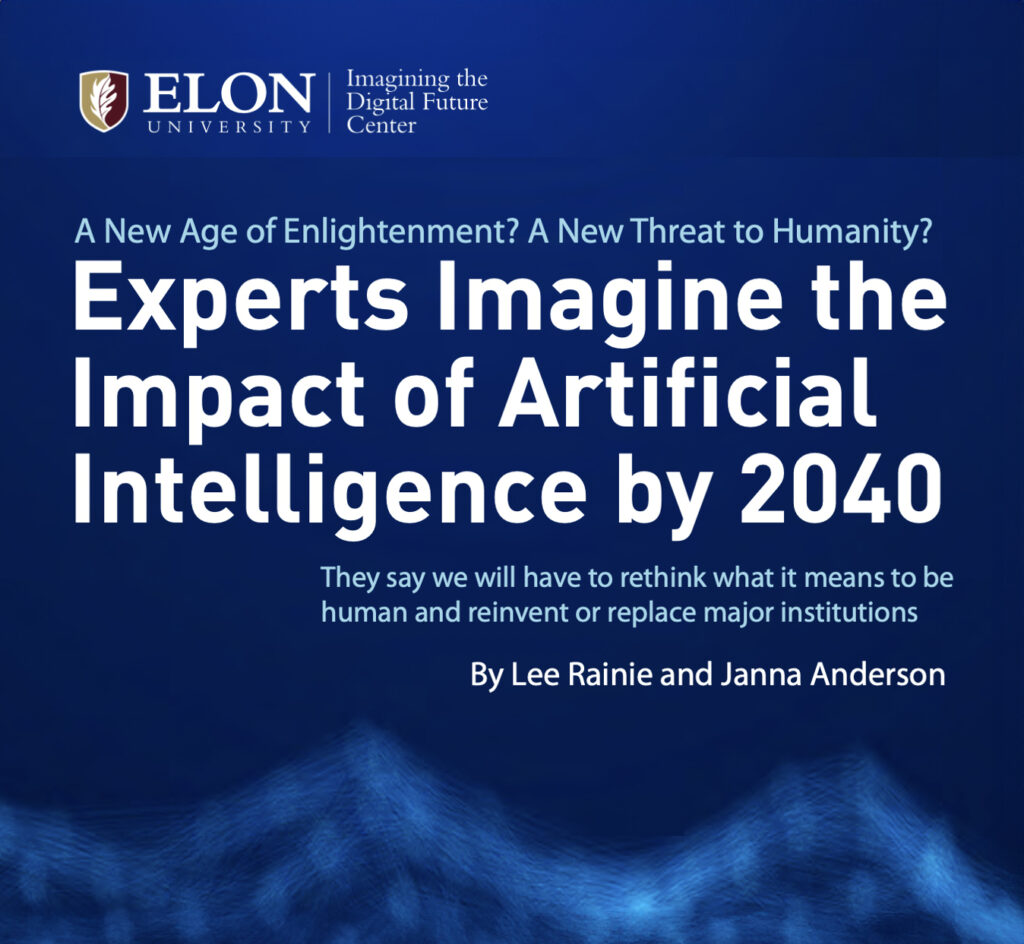
The primary open-ended qualitative prompt the experts responded to in this canvassing was the following:
Considering the likely changes created by the proliferation of AI in individuals’ daily lives and in society’s social, economic and political systems, how will life have changed by 2040? What stands out as most significant to you? Why? What is most likely to be gained and lost in the next 15 or so years?
A large share of these global experts and analysts briefly mentioned the great gains they expect, then focused their responses mostly on expressing worries over the potential losses they fear. An analysis of the comments from the 166 respondents who chose to respond to this question surfaced five major themes.
Click on the links below to read several experts’ full-length essays associated with each theme.
Theme 1 – We will have to reimagine what it means to be human
As AI tools integrate into most aspects of life, some experts predict the very definition of a “human,” “person” or “individual” will be changed. Among the issues they addressed: What will happen when we begin to count on AIs as equivalent to – or better than – people? How will we react when technologies assist, educate, and maybe share a laugh with us? Will a human/AI symbiosis emerge into a pleasing partnership? Will AI become part of our consciousness
Theme 2 – Societies must restructure, reinvent or replace entrenched systems
These experts urge that societies fundamentally change long-established institutions and systems – political, economic, social, digital, and physical. They believe there should be major moves toward a more equitable distribution of wealth and power. They also argue that the spread of AI requires new multistakeholder governance from diverse sectors of society.
Theme 3 – Humanity could be greatly enfeebled by AI
A share of these experts focused on the ways people’s uses of AI could diminish human agency and skills. Some worry it will nearly eliminate critical thinking, reading and decision-making abilities and healthy, in-person connectedness, and lead to more mental health problems. Some said they fear the impact of mass unemployment on people’s psyches and behaviors due to a loss of identity, structure and purpose. Some warned these factors combined with a deepening of inequities may prompt violence.
Theme 4 – Don’t fear the tech; people are the problem and the solution
A large share of these experts say their first concern isn’t that AI will “go rogue.” They mostly worry that advanced AI is likely to significantly magnify the dangers already evident today due to people’s uses and abuses of digital tools. They fear a rise in problems tied to extractive capitalism, menacing and manipulative tactics exercised by bad actors, and autocratic governments’ violations of human rights.
Theme 5 – Key benefits from AI will arise
While most of these experts wrote primarily about the challenges of AI, many described likely gains to be seen as AI diffuses through society. They expect that most people will enjoy and benefit from AI’s assistance across all sectors, especially in education, business, research and medicine/health. They expect it will boost innovation and reconfigure and liberate people’s use of time.


